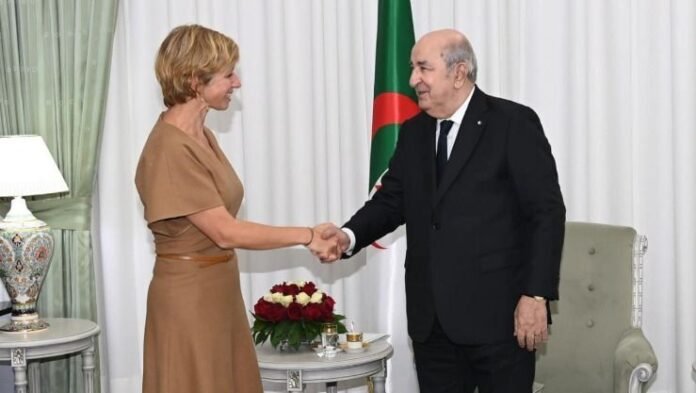In a complex diplomatic scene filled with tensions, France sent its special advisor to Algeria after what the Algerian press described as the “cardinal sin” – recognizing Morocco’s sovereignty over the Sahara.
This sudden French move raises questions about Paris’ stance: Is France attempting to walk a tightrope between the two rival neighbors, Morocco and Algeria? Or is this recognition part of a deeper strategy serving French interests in the Maghreb?
Recent actions have revealed a sense of urgency on France’s part to mend relations with Algeria. However, Algeria seems to be reorganizing its foreign policy after growing isolation due to its rigid stance on the Sahara issue.
What does the future hold? Will Algeria manage to re-enter the international scene by rebuilding bridges with Paris?
France’s dispatch of a special advisor to Algerian President Abdelmadjid Tebboune immediately after his re-election can be seen as a strong signal of Paris’ desire to reorganize its relations with Algeria after the tensions stemming from the recognition of Moroccan sovereignty over the Sahara.
But is France truly aiming to balance its relations, or is it simply seeking to achieve its strategic interests in the region without losing either party?
It seems that Paris has decided to play both sides: on one hand, recognizing Morocco’s sovereignty over the Sahara to secure significant economic gains through investments in the southern region of Morocco, and on the other hand, not wanting to lose Algeria as a key regional player, particularly in energy and security cooperation.
Algeria, feeling the pressure of regional isolation due to its support for the Polisario Front, no longer has the luxury of ignoring France or sacrificing its position in bilateral relations.
President Tebboune faces significant challenges, not only in his relations with Gulf countries that openly support Morocco, but also in his ability to redefine ties with major powers like France, which has shown interest in boosting economic cooperation with Rabat at Algeria’s expense.
In this context, the central question remains: Will Algeria succeed in managing this complex diplomatic issue? Or will it be forced to adapt to the new reality imposed by France’s support for Morocco?
Relations between Algeria and France have long been strained, with sensitive issues like the memory file and Algeria’s demands for the return of certain historical artifacts. Yet, there seems to be a desire to adjust the diplomatic course to avoid further escalation.
But is France aiming to balance its interests with Algeria as part of a delicate strategy? Or is this rapprochement merely a temporary tactic that doesn’t reflect a long-term strategic shift?
Amidst these developments, the equation remains complicated. France seeks to advance its interests in the region without sacrificing its relations with either Morocco or Algeria, while Algeria finds itself in a difficult position, needing to rebuild its deteriorated foreign relations.
The coming days will reveal the directions both sides will take, but one thing is certain: these maneuvers reflect a state of political tension that is hard to conceal.




